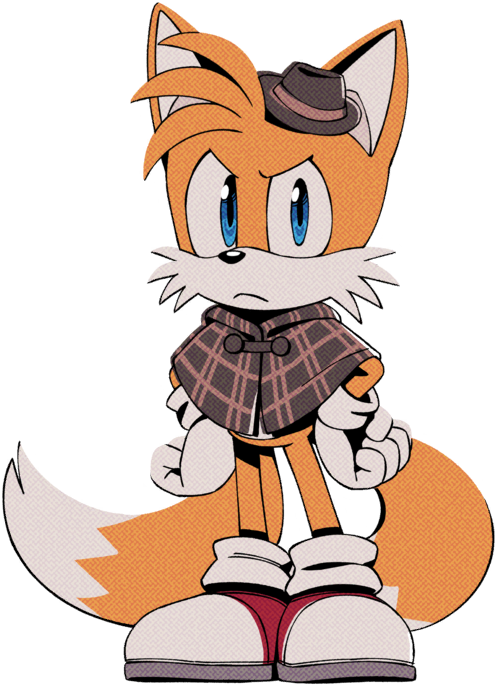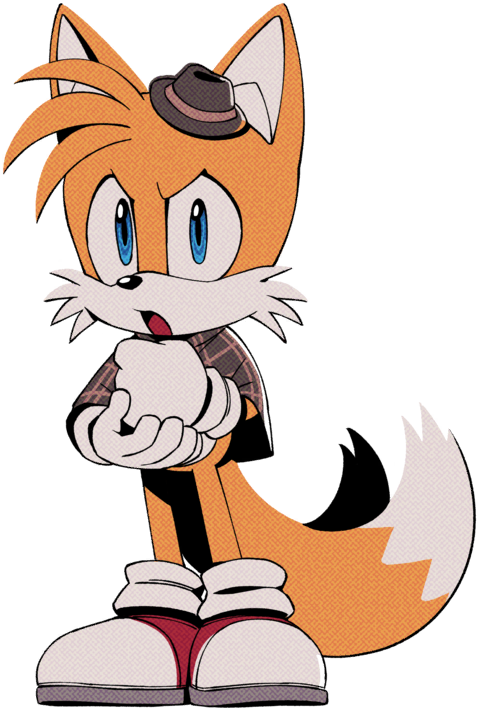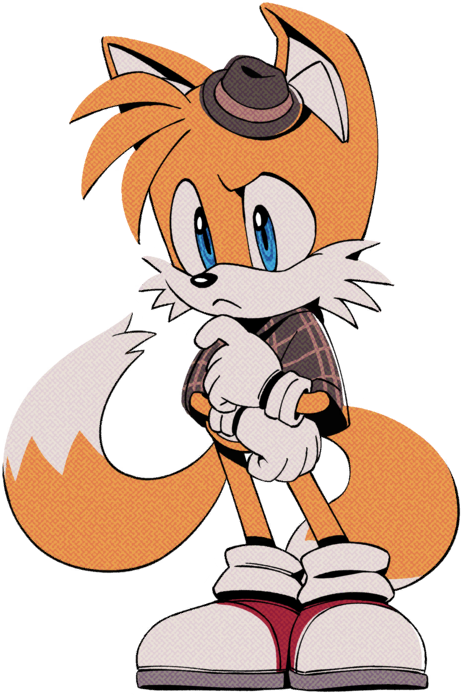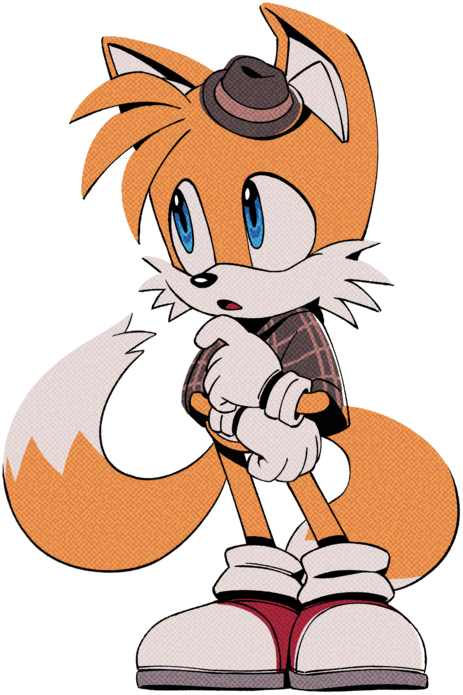Some Carl Rendarsss Im Gouna Sleep Now



some carl rendarsss im gouna sleep now
More Posts from Cheekyb4lls and Others
My Hazbin Hotel Critiques:
Note: These are my personal opinions, I'm not looking for conflict.
Not enough eps, I think with this kind of escalation in plot it should of had 12, at the very least, it would have left far more time to develop Angel Dusts character.
It had a three season story squeezed into 8 eps it was mad, if the battle had taken place three seasons in, the reveal of Vaggie being an angel, the fear of war with Heaven and the death of Sir Pentious would have meant so much more to the audience.
To ethicise Angel's deeply ingrained hyper sexual behaviour, it should, in my mind have been shown more so how uncomfortable he makes the other staff especially Husk.
Charlie got over Vaggie being an angel far to soon, imagine the emotional conflict if they had actually broken up, or atleast separated, If Charlie have had an episode or two of her going through the motions of forgiveness, Vaggie being cast out the hotel in shame Alastor using it as a means of emotional manipulation to grow closer to her, praying on her vulnerability and THEN he swoops in and makes the deal, showing again Alasor is a grifter and will take advantage of someone if he feel's he can benefit.
The Friendship between Lute and Adam should have had atleast three scenes dedicated to it, they are bad people but to make then good characters in the sense that they have depth would have been great for the audience, for atleast some emotional reaction for Lute, yes Adam is a twat who deserved to die, but just a pang of sadness for Lute would have been great.
too much swearing, it's excessive and cheesy, instead of Alastor saying ''Im about to end your fucking life'' he could have just said ''I am about to end your LIFE" with a deep growling kinda thing on 'life' of instead of Vaggie saying ''Shitass'' (A terrible sweat word) she could have just not said that it didn't add any enthesis on her conversation with Alasor.
MY BABYYYY








Miles “Tails” Prower from The Murder of Sonic the Hedgehog.
Pt. 1

ladies and gentlemen, i present to you zoro as snufkin

What actually happened to Jayce and Viktor in the end? And why didn’t Ekko’s Z-drive destroy everything within its blast radius?
TL;DR: the only timeline that could have worked was the one where Viktor gives Jayce the Acceleration rune, where Ekko invents the Z-drive, and where Jayce saves Viktor and gets his partner back.
Something we’ve seen pointed out is that the world rune that worked in this timeline was the Acceleration rune, which has the function of transportation through time and space.

Ekko’s Z-drive was built by inverting Jayce’s Acceleration rune (this is important later).

We know from his experiments that the limit for reversing time is only 4 seconds. Any further back and it causes catastrophic harm to his surroundings. It’s implied that the further he overextends his Z-drive, the more disastrous the damage and radius of effect.
In the final battle against Viktor, we see Ekko overextend his Z-drive far beyond 4 seconds. Then, he yeets it at Viktor, whose mask is shattered from the impact.

We know that turning back time beyond 4 seconds causes catastrophic destruction of the surrounding areas: Jayce and Viktor, and perhaps countless others should have been caught up in the blast. But instead, we see something different:
Time stands still for a moment, courtesy of the boy who shattered time.

Now things happen all in a manner of seconds: In the astral plane, we see Viktor comment on the anomaly that Ekko has created.

It’s something that Viktor as smart as he is, couldn’t have conceived— leave it to Ekko (and lest I forget, Heimerdinger and alt-Jinx) to show them all up.
This is debatable, but I firmly believe that Viktor with his awareness of all time and space, could have escaped or even survived the explosion.

It’s only Jayce, the only person who could show him what he showed him, that gets through to him in the end and convinces him to give up his Glorious Evolution.
"In all timelines, only you can show me this". Ekko is the catalyst but Jayce was the key.

Jayce returns the Acceleration rune to Viktor which kicks off a chain of events. The souls under Viktor’s control are freed from his grasp. Back in the real world, and back to the explosion, we see the following happening almost simultaneously:


The blast from the Z-drive extends from Viktor’s reach to Jayce’s
The Acceleration rune embedded in Jayce’s wrist starts to glow from being activated by Jayce and Viktor in the astral plane
Jayce and Viktor are absorbed into the gem and the gemstone blips out of existence
Recall that the Z-drive was created through an inversion of the Acceleration rune. To multiply something by its inverse, is to divide it by itself. The Acceleration rune multiplied by the Inversed Acceleration rune, cancels out the effect of the other: nullifying both the anomaly from the Z-drive but also the rune.
This explains why there was no larger explosion. Viktor and Jayce (who chose to stay) sacrificed themselves and took themselves out of the equation. Jayce and Viktor were the anomalies— just like the Z-drive should not have existed, neither should have Hextech.
Through all the timelines and permutations of runes that Viktor tried, the only combination that could have worked was in the timeline with the Acceleration rune. It couldn’t have worked if it was any other rune, if Ekko had never invented the Z-drive, or if Jayce had never convinced Viktor to give up his path of destruction, and got his partner back.

In short: Boy Savior saves the day; Love Wins
he def has some form of scoliosis


(Whispering urgently) I don't mean to alarm you, but I think that guy at the bar digs your vibe
Atsushi and empathy: a relationship with highs and lows
I have seen a few comments and analyses about how Atsushi has a black and white thinking/doesn't show villains with tragic backstories the sympathy an hero usually does. With this, I want to add my two cents.

The first time he finds himself interacting with an enemy he can confront, is when Tanizaki pretends to be a bomber. In this, Atsushi is way out of his depth, but he tries to draw comparison to his situation, pointing out that he too underwent terrible things but doesn't go around bombing places. Dazai and Kunikida compliment him on making a very good impression of a degenerate.

Ahem. Moving on. The next enemy with whom he has a meaningful interaction is Akutagawa. Whose introduction to Atsushi consists into stomping on the tiger boy trauma trigger of 'bringing only troubles to other', reducing Atsushi's willingness to empathize with him to the negative numbers and thus coloring all of their following interactions.
Moreover, he slaps Higuchi around without a care, and Atsushi can immediately connect it to the way he himself was abused. He doesn't think for a moment to try and understand where Akutagawa is coming from. Which would be understandable, given that the other is trying to kill him, but then …

Kyouka tries to kill him too, but his reaction is very different. He tries to understand her, encourages her to express her wishes, and risks his life to save her. What changed?
Well, not Atsushi; rather, the nature of his enemy. Akutagawa introduced himself in a show of strenght, showing impressive control on his Ability and a willingness to abuse those around him. Kyouka introduced herself in a show of weakness and despair: she appeared as a young and frail girl; she didn't express a real willingness to attack; even her own Ability wasn't controlled by her; moreover, she stated the number of her victims for the mafia and her desire not to kill anymore, with teary eyes.
As a result, he can very quickly see the parallels between her and his former, abused self. His reasoning becomes: if they're basically the same, why is he being saved and she isn't? It's unfair, and so, he will protect Kyouka, despite Kunikida yelling at him that she's beyond salvation. And he'll protect her especially against Akutagawa, who doesn't miss the occasion to present himself as even more of a villain, defending his abuse of the girl as 'making her strong and fit to live'.
So, Kyouka is a pure, innocent victim, whose violence was forced out of her; Akutagawa is a monster for no other reason that, well, he's a monster (Read: Kyouka=Young!Atsushi, Akutagawa=Headmaster).

Next one, we have Lucy. If Kyouka and Akutagawa were pretty clear-cut, she's a bit of a mixed bag. She introduces herself kidnapping people and tormenting them with a game that is almost impossible to win; but at the same time, she immediately tattles about her past in an orphanage, which since social services are unheard of in this world is as bad as Atsushi's. Fittingly, in this meeting Atsushi is ambivalent: he fights her with all that he has got, forces her to free her victims, but in the end, he tries to reach out to her; he doesn't succeed because she runs away.
In their next meeting, he finds out she lost her standing in the Guild as a result of this defeat, and now she's essentially just a serving girl. He does realize that he made a mistake here: he tried to help her, but didn't really take her situation in consideration, so he just made things worse. This reasoning, while chock full of Atsushi's typical self-hatred, isn't unfounded; but soon enough he gains other preoccupations.
Namely, the fact that an Ability is wrecking havoc all around Yokohama, and the only way to stop it is bringing Q's doll to Dazai, who is currently somewhere but on the ground as opposed to on a dirigible like Atsushi. Lucy shows up to gloat, relishing in seeing someone who found a home and friends (unlike her) suffer, and going on and on about how he couldn't possibly understand her. But Atsushi replies by showing her his own wounds; he was just like she was, and moreover, there are other children suffering just like they did down there; she has the power to help and save them by letting him go. This speech brings out Lucy's own empathy, and she decides to help.

Next, there is his confrontation with Akutagawa. What makes their fierce arguments and putdowns of each other so interesting is that, at the base, their problem is the same: they can't find internal self-worth, and need external validation instead, because the people in charge of them in the past raised them to believe that they were worthless until they did something specific. The fact that this specific thing is different is the reason of their superficially different ways to face the problem: Atsushi's Headmaster inculcated him the belief that he was worthless unless he didn't protect and save other people, Akutagawa's Dazai raised him to believe that he would be worthless unless he wasn't strong and violent.
On the top of that, each has something the other more or less secretly craves: Akutagawa has all the power Atsushi would like for himself, and has the nerve to use it to harm other people instead of saving them; Atsushi has Dazai's approval, and beyond that, the genuine human connection Akutagawa desires, and has the nerve to ignore it to complain about his past.
The fascinating aspect to their argument is that they realize the fallacies of the other's way of thinking, and yell them to the other's face, but they don't have enough self-awareness to realize that they're pretty much doing the same thing. It's only Fitzgerald who brings the argument to a sort of close by posing a bigger problem first and making them too exausted to fight when it's all over; confronted with him, they manage to cooperate, and even give some little validation to the other.
By the way, regarding Fitz himself, Atsushi does look saddened when it seems like he died after hearing about his family, but he doesn't try to reason with him, he just attacks. Well, there really is little time before the Moby Dick crashes down.

Then, Cannibalism Arc. There is this very interesting moment between Akutagawa and Kyouka, which reveals that she was the one to approach him to ask him to destroy her and her Ability, which she blamed for the death of her parents. Akutagawa refused to do that, and tried to make her 'worthy of living' in the only way acceptable in the mafia: training her to be a killer. It didn't work, and after seeing her in the Agency, he himself realizes that, and congratulates Kyouka. So, the girl has a much darker side, that Atsushi ignored in favor of seeing her as only a victim, and Akutagawa was trying to save her, in his own very misguided way. The situation is much more complex than it looked at the start, but our hero still doesn't know it.

Moving on with the arc, their infiltration of the Rat's base. With a line that really should be talked about more.
It's a direct, intentional attack on Akutagawa's biggest insecurity. Atsushi himself realizes that he said something very impactful, and in a first moment he feels uneasy about it ... to try and repeat it a few minutes later, to get Akutagawa to do what he wants. It already kind of worked once, right?
What is very interesting in this scene is that Atsushi doesn't even try to understand Akutagawa: he just judges him, without asking himself how he became that way. He basically takes for granted that Aku got out of his mother's uterus ready to murder, with no other factors possibly involved. Of the two, it's Akutagawa, the least compassionate and more violent, who tries to understand Atsushi, keeps questioning him on his motivations and actually re-evaluates him on the new information who receives. I'm not saying that he is a better person for that, but it's interesting how Aku, for all of his flaws, seems to understand people better than Atsushi does.
But at the end of the arc, there is the famous agreement between Akutagawa and Atsushi: they will face in six months, to determine who has the biggest will to live, and in the meanwhile, Akutagawa will not kill anyone, on Atsushi's request. Tiger boy notoced something: Akutagawa kills to prove his strenght. Maybe, if he forces him to go 'cold turkey', he will start to notice other things of value in life. Atsushi is starting to recognize that the situation is more complex.

The next confrontation of Atsushi with an antagonist is the one with Gogol. He is the one to question his opponent's motives, even if it's just for earn more time for help to arrive; but still, he is a little invested in that. He is shocked and confused by Gogol's behaviour, and states that he doesn't understand, earning a resigned reply from the clown. Honestly, given how he treats those who do understand him, it was probably for the better, Atsushi got to live.

The exact opposite happens the next time he meets someone from the Decay of Angels: Sigma. In this case, Atsushi fell in his usual fallacy: he saw Sigma as a victim, someone who had just been wounded and left to die by his own comrades, and of course his comment about not knowing the meaning of his own life, something Atsushi can relate to. So he tried to help him,and
as a result, he got help from the guy himself, even if he ultimately failed.
Finally, we have the last Shin Soukoku fight, and its aftermath.
Atsushi was just thinking that he was alone against Fukuchi, and in comes Akutagawa like a boss, who has kept an eye on the situation insofar on Dazai's orders. And this isn't the only surprise he gives Atsushi.
He kept his promise of not killing anyone until their next confrontation. This comes pretty much as a shock to Atsushi; it's not specified why, but I suspect our hero, in his black-and-white morality, didn't think it possible that a violent killer such as Akutagawa was capable of understanding, let alone performing, something as honorable as to keep a promise; no, he had to be entirely rotten.
This gets very briefly turned on its head when Akutagawa pretends to be joining Fukuchi: Atsushi even seems indignant that the other would want to put his own life above a conflict in which he isn't actually involved. Coming from someone who sees no worth in his own life and seeks it in protecting others to personal risk, but he still criticize Aku for his dependency on Dazai's approval, not understanding that it comes from the same place as his dependency on saving people.
Then Akutagawa unleashes a pair of bombs: first, he has a lung illness and little time left to live, and achieving Dazai’s approval is the thing he wants most before dying (suddenly putting him in a sympathetic, vulnerable light) and then does what in Atsushi’s mind is the unthinkable: he sacrifices himself to save him.

This basically turns Atsushi’s world up on its head. He just can’t fathom why. Akutagawa hated him, so why let himself be killed for him? He can’t stop thinking about that. Suddenly, Akutagawa stopped being this bloodthirsty enemy and became a real person, one with an history and thought processes Atsushi was not privy to.
The next time Atsushi will face Akutagawa, it will be his vampire form: nothing but a bloodthirsty beast, exactly what he thought Akutagawa was up to this point, and the contrast will only further his realizations. What will he do at that point will probably be a defining moment for his character arc, and I’m really curious to see what it will be.
To sum it all up: Atsushi is a very good representation of someone who grew up in an abusive and isolated situation, and as a result, while well-intentioned, is unable to relate to other people who lived in situations different from his own, terrible as these situations might be, and classifies the world between abusers and victims, with no space for grey areas. To become the best version of himself, to complete his journey as a protagonist, he will have to outgrow the worldview the Headmaster left him with.
Thanks to anyone who will bother to read my ramblings!









part 1 of mob vs brainwashed reigen :) man i love making characters face against their controlled/evil loved ones
part 2 here
(IM ANIME ONLY SO NO MANGA SPOILERS!)
(update! I added image descriptions to the images!)
-
 ltcaneko reblogged this · 1 month ago
ltcaneko reblogged this · 1 month ago -
 litterboxshitter liked this · 2 months ago
litterboxshitter liked this · 2 months ago -
 dr-fizzovich liked this · 2 months ago
dr-fizzovich liked this · 2 months ago -
 dejf-rzeczny liked this · 2 months ago
dejf-rzeczny liked this · 2 months ago -
 thepainofanartist liked this · 2 months ago
thepainofanartist liked this · 2 months ago -
 roughsketch2010 liked this · 2 months ago
roughsketch2010 liked this · 2 months ago -
 sharkshooter liked this · 3 months ago
sharkshooter liked this · 3 months ago -
 gentlemenrat4 liked this · 4 months ago
gentlemenrat4 liked this · 4 months ago -
 mondayjelloonly liked this · 4 months ago
mondayjelloonly liked this · 4 months ago -
 technically-a-kiwi liked this · 4 months ago
technically-a-kiwi liked this · 4 months ago -
 jazzgyukatsu liked this · 4 months ago
jazzgyukatsu liked this · 4 months ago -
 capetillar liked this · 4 months ago
capetillar liked this · 4 months ago -
 emmetofthestars reblogged this · 4 months ago
emmetofthestars reblogged this · 4 months ago -
 eldrithescapology reblogged this · 4 months ago
eldrithescapology reblogged this · 4 months ago -
 sawb0nezzz liked this · 4 months ago
sawb0nezzz liked this · 4 months ago -
 kingbajs liked this · 4 months ago
kingbajs liked this · 4 months ago -
 jurassicjsart reblogged this · 5 months ago
jurassicjsart reblogged this · 5 months ago -
 jurassicjsart liked this · 5 months ago
jurassicjsart liked this · 5 months ago -
 apsap reblogged this · 5 months ago
apsap reblogged this · 5 months ago -
 poortaste-jokes-badtaste-media reblogged this · 5 months ago
poortaste-jokes-badtaste-media reblogged this · 5 months ago -
 dreamersbbq liked this · 5 months ago
dreamersbbq liked this · 5 months ago -
 5absurdlybigwheelsofcheese liked this · 6 months ago
5absurdlybigwheelsofcheese liked this · 6 months ago -
 cl0wnbytez reblogged this · 6 months ago
cl0wnbytez reblogged this · 6 months ago -
 cl0wnbytez liked this · 6 months ago
cl0wnbytez liked this · 6 months ago -
 otto-von-gay liked this · 6 months ago
otto-von-gay liked this · 6 months ago -
 elmosbaby liked this · 7 months ago
elmosbaby liked this · 7 months ago -
 yez1i reblogged this · 7 months ago
yez1i reblogged this · 7 months ago -
 yez1i liked this · 7 months ago
yez1i liked this · 7 months ago -
 demermio liked this · 8 months ago
demermio liked this · 8 months ago -
 wadeassgrabberwilson liked this · 8 months ago
wadeassgrabberwilson liked this · 8 months ago -
 fromcoomcave liked this · 8 months ago
fromcoomcave liked this · 8 months ago -
 zurbagank liked this · 8 months ago
zurbagank liked this · 8 months ago -
 radarsdomain reblogged this · 8 months ago
radarsdomain reblogged this · 8 months ago -
 radarsdomain liked this · 8 months ago
radarsdomain liked this · 8 months ago -
 rambling-talkative-chatterer liked this · 8 months ago
rambling-talkative-chatterer liked this · 8 months ago -
 distantfoghorn liked this · 8 months ago
distantfoghorn liked this · 8 months ago -
 daveyrsonmiller liked this · 8 months ago
daveyrsonmiller liked this · 8 months ago -
 thehumanmaiden22 liked this · 8 months ago
thehumanmaiden22 liked this · 8 months ago -
 giddlygoat liked this · 9 months ago
giddlygoat liked this · 9 months ago -
 call-me-deedra reblogged this · 9 months ago
call-me-deedra reblogged this · 9 months ago -
 mofledowe liked this · 9 months ago
mofledowe liked this · 9 months ago -
 rainfig liked this · 10 months ago
rainfig liked this · 10 months ago -
 helldtek liked this · 10 months ago
helldtek liked this · 10 months ago -
 sunnyshinelollipops liked this · 10 months ago
sunnyshinelollipops liked this · 10 months ago -
 armaggedonn liked this · 10 months ago
armaggedonn liked this · 10 months ago -
 doc-jim liked this · 10 months ago
doc-jim liked this · 10 months ago

any | 𝐗𝐕𝐈𝐈 | panromanticmultifandom (arcane, tf2, crk) , occasionally does artthe sanguine melancholic of all time
170 posts








